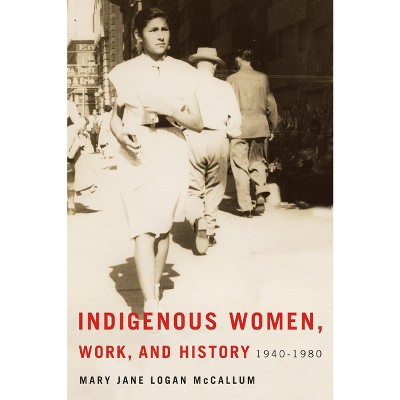About this item
Highlights
- Though First Nations communities in Canada have historically lacked access to clean water, affordable food, and equitable health care, they have never lacked access to well-funded scientists seeking to study them.
- Author(s): Travis Hay
- 208 Pages
- History, Canada
Description
About the Book
Inventing the Thrifty Gene exposes the exploitative nature of settler science with Indigenous subjects, the flawed scientific theories stemming from faulty assumptions of Indigenous decline and disappearance, as well as the severe inequities in Canadian health care that persist even today.
Book Synopsis
Though First Nations communities in Canada have historically lacked access to clean water, affordable food, and equitable health care, they have never lacked access to well-funded scientists seeking to study them. Inventing the Thrifty Gene examines the relationship between science and settler colonialism through the lens of "Aboriginal diabetes" and the thrifty gene hypothesis, which posits that Indigenous peoples are genetically predisposed to type 2 diabetes and obesity due to their alleged hunter-gatherer genes.
Hay's study begins with Charles Darwin's travels and his observations on the Indigenous peoples he encountered, setting the imperial context for Canadian histories of medicine and colonialism. It continues in the mid-twentieth century with a look at nutritional experimentation during the long career of Percy Moore, the medical director of Indian Affairs (1946-1965). Hay then turns to James Neel's invention of the thrifty gene hypothesis in 1962 and Robert Hegele's reinvention and application of the hypothesis to Sandy Lake First Nation in northern Ontario in the 1990s. Finally, Hay demonstrates the way in which settler colonial science was responded to and resisted by Indigenous leadership in Sandy Lake First Nation, who used monies from the thrifty gene study to fund wellness programs in their community.
Inventing the Thrifty Gene exposes the exploitative nature of settler science with Indigenous subjects, the flawed scientific theories stemming from faulty assumptions of Indigenous decline and disappearance, as well as the severe inequities in Canadian health care that persist even today.
Review Quotes
"Inventing the Thrifty Gene is a wonderful book: it turns the tables on the scientists--it is their "settler science" that should be dissected instead. What we learn is that it is bad science and that it has been bad science since its inception."
--Lorenzo Veracini "University of Toronto Quarterly""Inventing the Thrifty Gene is an excellent read. Hay ably shows that settler science is complicit in masking the real causes of negative Indigenous health outcomes. He eloquently explores the history of settler-colonial science, as well as various policies that helped create the mythological notion of the thrifty gene."
--Karl Hele "Anishinabek News""Travis Hay has written a passionate indictment of the impact that the science of settler colonialism has had on First Nations communities... Inventing the Thrifty Gene is a welcome addition to a growing body of scholarship that criticizes the privileging of genetic explanations when trying to understand the roots of ill health. Hay draws heavily on this scholarship, which he cites often and generously. What he contributes is a unique synthesis of past work, coupled with his own archival research, to reveal the long and sustained indifference to the health of First Nations peoples [in Canada]."
--Arleen Marcia Tuchman "American Review of Canadian Studies""An important text in understanding the sordid history of Canada's disastrous Indian policy. Hay takes care to address these topics in an appropriate and respectful manner and steps away from the history of settler colonial scholarship that presumes to write about Indigenous peoples rather than with them."--Caden Colegrove "Prairie History"
"Hay's book incites productive outrage towards the unjust practices in Canada's federal and provincial healthcare systems [and] invites his readers to consider who benefits, and who is harmed, when settlers conduct extractive research within Indigenous communities."--Lauren Luchenski "Ontario History"
"Hay's chapters on Canada's early settler colonialism and Indian policy are illuminating and well worth reading. On the science of settler colonialism, he brings to life the men who were instrumental in establishing the Indian policies, shored by the intensive and perpetual study of First Nations people."--Sheilla Jones "Winnipeg Free Press"
"Travis Hay wisely interprets this study and its impact through a larger study of colonial science and its operation in Canada and internationally... Hay also includes the history of Indigenous peoples speaking back to colonial science, most notably through the histories of Jacob and Josias Fiddler, a father and son, who both served as chiefs at Sandy Lake First Nation."--Catherine Carstairs "The Canadian Historical Review"
Shipping details
Return details
Trending Non-Fiction












